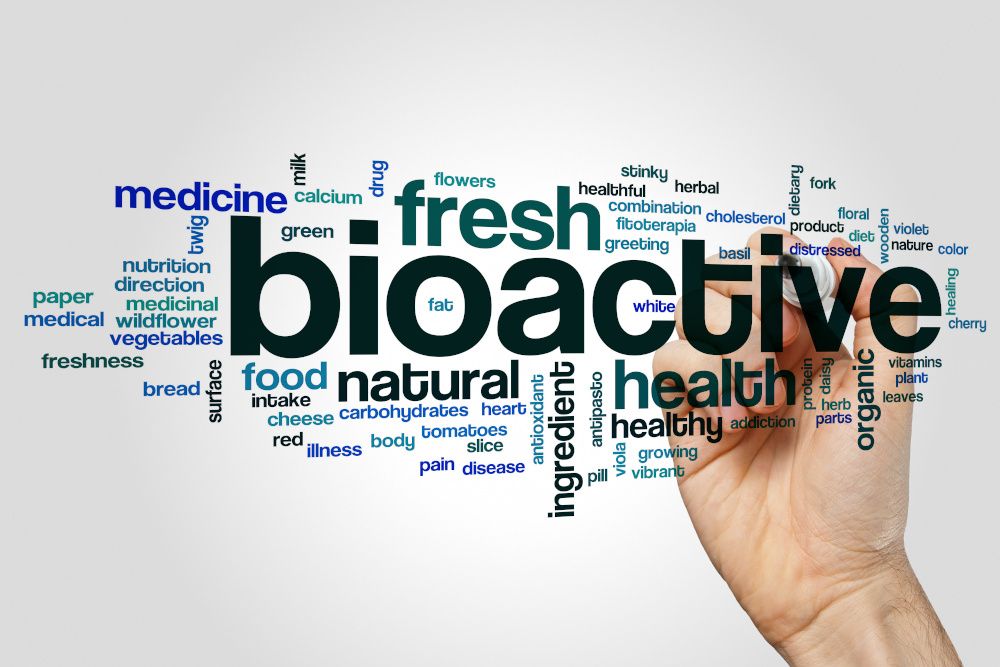Brightseed’s new Bioactives Coalition will spread awareness about the benefits of bioactive ingredients
“The coalition aims to bring mainstream awareness and education about bioactives to industry, consumers, and policymakers,” Brightseed’s press release states.
Brightseed (San Francisco, CA), the company discovering and producing bioactive compounds using its AI technology Forager, has formed a group called the Bioactives Coalition whose aim is to build awareness about the benefits of bioactive ingredients for functional food, beverages, and supplements. “The coalition aims to bring mainstream awareness and education about bioactives to industry, consumers, and policymakers,” Brightseed’s press release states.
The Bioactives Coalition includes these researchers and experts: Jed W. Fahey, MS, ScD, a nutritional biochemist at Johns Hopkins University who is studying the impact of plant-based nutrition on chronic-disease prevention; Mark Hyman, MD, the founder and senior advisor of the Cleveland Clinic Center for Functional Medicine; Taylor Wallace, PhD, CFS, FACN, principal and CEO of the Think Healthy Group; Katie Stebbins, executive director of the Food & Nutrition Innovation Institute at Tufts University; Ashlie Burkart, MD, CM, chief science officer at Germin8 Ventures; chef Robert Graham, MD, MPH, the founder of Fresh Medicine and Fresh Med U; and Jennifer Kelly, PhD, nutrition director at Food Systems for the Future.
Their insights will guide Brightseed in expanding the bioactives-ingredients market, says the company. “The Bioactives Coalition facilitates interactions among food and health system leaders who champion the adoption of bioactive compounds into U.S. dietary guidelines,” the press release states. “The coalition also aims to educate on the mounting scientific evidence, advancements in research and discovery, and key perspectives to inform bioactive use and regulation in functional food, beverage, and supplements.”
“Science has long known that bioactive compounds in plants and other natural sources are critical to human health, yet due to the complexity of understanding their direct impact on human biology, they are often referred to as the ‘dark matter’ of nutrition,” Brightseed’s press release states. “Existing clinical evidence and AI-enabled advancements in R&D are contributing to a reevaluation of bioactives for industry and consumer health use cases.”
There has been some progress for bioactives, with Brightseed noting that in 2022, the Academy of Nutrition and Dietetics led development of the first ever North American guideline and daily intake recommendations for flavan-3-ols, which Brightseed calls “a watershed moment for the recognition of bioactives.” The guidelines recommend 400-600 mg/day of flavan-3-ols from foods like tea, berries, cocoa, apples, pears, and cinnamon.
Moving forward, some of the issues the Bioactives Coalition will flesh out includes the lack of a universal definition for bioactive compounds in U.S. dietary guidelines.
“Given the advancement in science and technology, the time is ripe to help build a widely accepted consensus on the definition and role of bioactive compounds for integration into dietary guidelines or current regulatory frameworks,” said Jan-Willem Van Klinken, senior vice president of scientific and medical affairs at Brightseed, in the press release. “Bioactives are the ‘missing good’ in our food system and a core component required for proactive and preventative health. With the tools and research momentum available today, we can go beyond vitamins, minerals, and proteins and begin including bioactives as an important part of nutrition and in modern medical education.”
On July 23, Brightseed will host a satellite symposium called “The Scientific Evolution of Bioactives in Human Health, Current Challenges, and the Path Ahead Illuminated by AI-Driven Science” at the American Society for Nutrition’s Nutrition 2023 annual conference taking place on July 22-25 in Boston, MA.
Senate Committee has released the text of 2024 Farm Bill, with changes to hemp regulations
November 19th 2024The U.S. Senate Committee on Agriculture, Nutrition, & Forestry has introduced the Rural Prosperity and Food Security Act, which will serve as the Senate’s draft for the 2024 Farm Bill.
